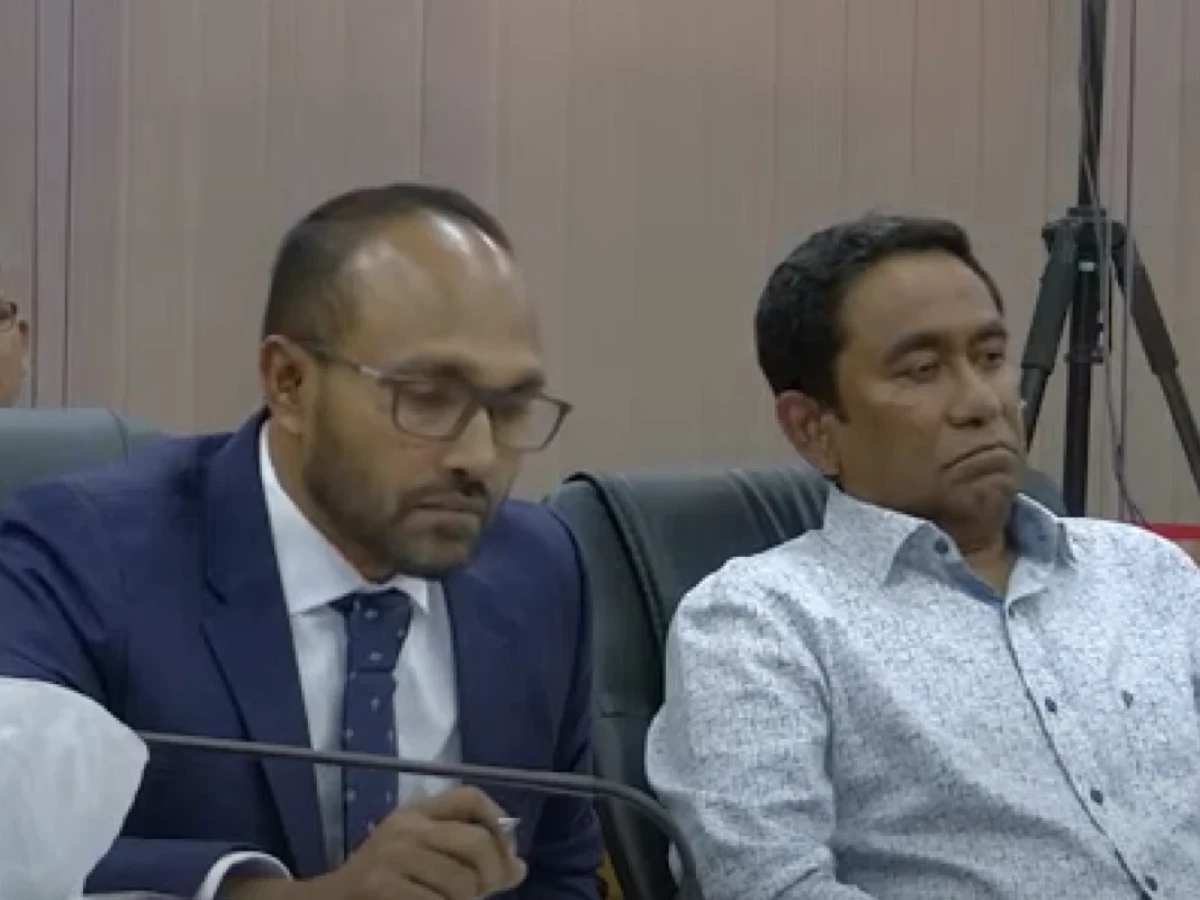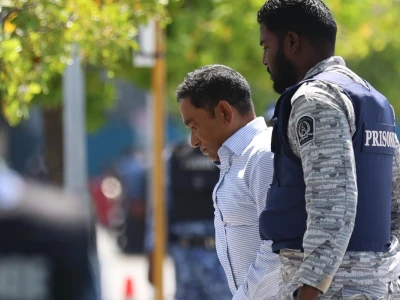
Court orders handover of all case files to build Yameen's defence
After hearing arguments from both sides, Judge Ali Nadeem decided to allow the defence to examine the investigation file.
Top Stories
By
Fathmath Ahmed Shareef
Criminal Court on Thursday ordered the Prosecutor General's Office (PG) to hand over all the documents of the investigation conducted by the investigative agencies involving former President Abdulla Yameen Abdul Gayoom and Ahmed Krik Riza into the alleged irregularities in the leasing of R. Fuggiri through MMPRC.
The Supreme Court recently upheld lower court's ruling on disclosure of evidence of pre-trial submissions in the Fuggiri case.
However, following complaints by Yameen and Krik Riza regarding the difficulties in obtaining the documents from the state's investigative agencies for defence, the Supreme Court's ruling laid down clear procedures to be followed by the PG and judges in providing such information.
As a means of defence, law enforcement agencies should allow the defence to access all the information collected for the purpose of investigation.
In view of the Supreme Court's decision, it was noted in the hearing held on Thursday that Yameen and Krik Riza had requested the PG to obtain the investigation file on the Fuggiri case.
Yameen's attorney Dr Mohamed Jameel Ahmed said that a letter has also been submitted to the court on Thursday, seeking the documents.
Yameen and Krik Riza requested the court to allow them:
-
to review the investigation file of the case before the recording of evidence; that is because they want to build their defence after reviewing the contents of the file
-
to review the letters sent by the President's Office to the tourism ministry
-
to review the letters sent by the tourism ministry to MMPRC
-
to review the letters sent by the MMPRC to the President's Office and tourism ministry
After this, the court adjourned the recording of evidence for another day and took up the matter with the court to discuss some of the submissions.
Riza's attorneys also pointed out to the court that they had requested the state to provide the documents on May 22, but they have not responded so far.
On the issue of providing the documents, the state on Thursday pointed out that the documents cannot be sought at this stage and it does not believe that they should be given as it has to be done at the pre-trial stage.
However, after hearing arguments from both sides, Judge Ali Nadeem decided to allow the defence to examine the investigation file together.
Nadeem said that he was of the view that Supreme Court's ruling extends beyond the pre-trial stage when it comes to evidence examination to form the defence.
The judge said:
-
The investigation files sought by the defence should be provided by the agencies and the court should be directed to find out what documents are available to disclose them
-
Since the state needs five days to do so, state prosecutors will appear before the court along with the documents during that period and share the documents with the defence
-
To bring the original of the files while appearing before the court to share the documents required by the defence
-
Prepare and hand over a receipt for the documents handed over to the defence
Thursday’s deposition hearing was postponed and the proceedings were adjourned as objections under the Criminal Procedure Code were filed. As the hearing, which lasted more than four hours, was too long, Nadeem decided to hold another hearing on Tuesday to submit the remaining submissions.
While the criminal court directed the state to provide the investigation files to the defence, the Supreme Court's recent ruling on evidence says that the investigating agency should allow the defence to access all the information collected for the purpose of investigation. It is the duty of the prosecution to make arrangements for the scrutiny of such materials if a judge orders it, the Supreme Court said.
However, the judge has the power to order that such a document cannot be provided unless the information of a confidential witness to be protected is disclosed or any other such interest involved in the case is protected.




